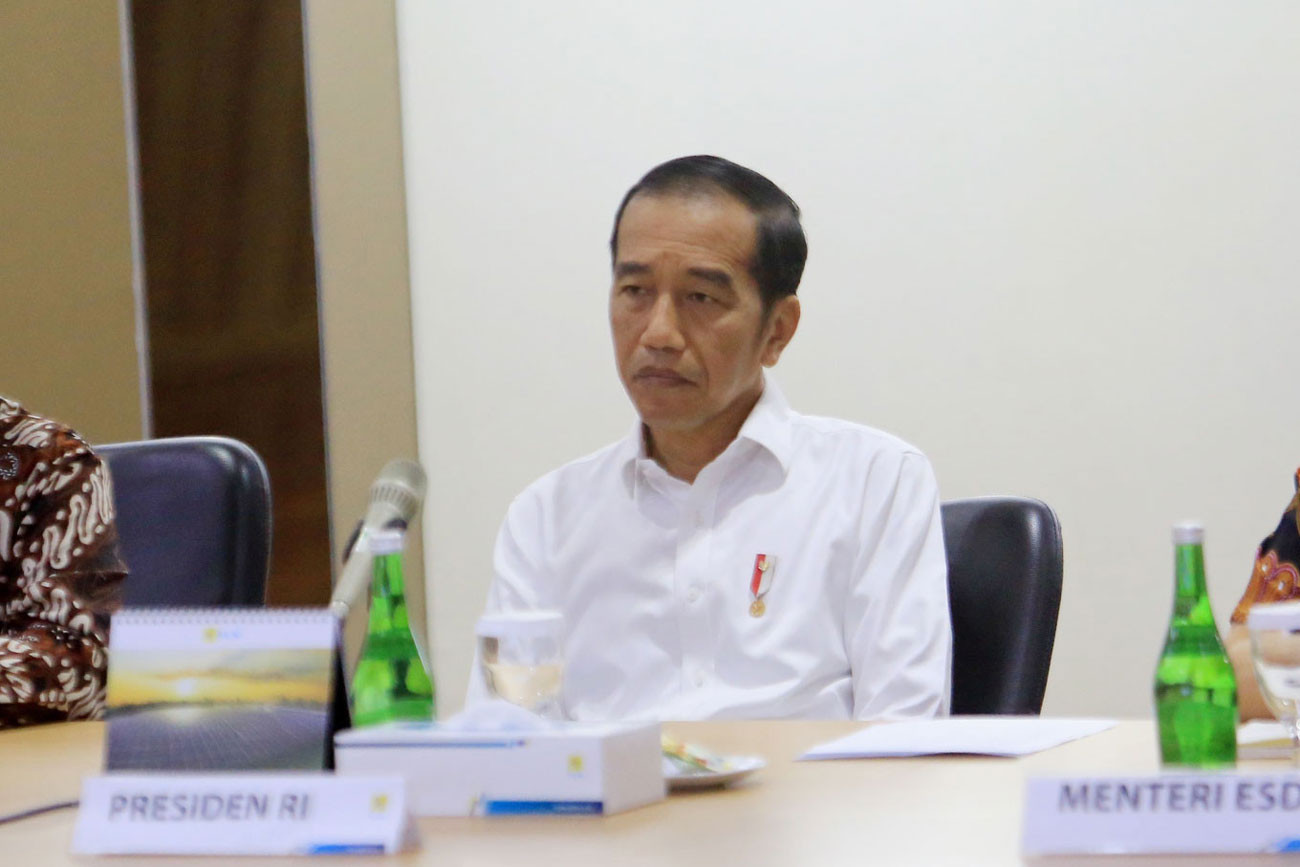Popular Reads
Top Results
Can't find what you're looking for?
View all search resultsPopular Reads
Top Results
Can't find what you're looking for?
View all search results'I'm directly elected’: Jokowi signals opposition to restoring ‘New Order’ MPR
The President has voiced his support for maintaining direct presidential elections amid a discourse that has resurfaced on restoring the People's Consultative Assembly (MPR) to a position akin to what it held during the authoritarian New Order era.
Change text size
Gift Premium Articles
to Anyone
P
resident Joko “Jokowi” Widodo has indicated his opposition to a discourse on restoring authority to the People’s Consultative Assembly (MPR) to appoint the nation's president, signaling his support for the peoples’ right to directly elect their leader.
The discourse surfaced recently with political parties seeking to restore the MPR as the highest lawmaking body in the country — even above the president – by amending the 1945 Constitution.
“I am [a President] directly elected by the people. Why would I support [the plan for] the MPR to appoint the President?” Jokowi told the chief editors of several national media, including The Jakarta Post, on Wednesday.
A majority of political parties in the House of Representatives (DPR) has come up with a plan to amend the Constitution and restore the defunct state policy guidelines (GBHN), which is to fall directly under the MPR. The Indonesian Democratic Party of Struggle (PDI-P), of which Jokowi is a member, is at the forefront of the parties' efforts to push for a constitutional amendment.
Although the parties have insisted that they are seeking only a "partial" amendment, it is feared that restoring power to the MPR could give it a greater mandate than the president. If realized, the legislative body might even be able to impose control over the government, including appointing the president and vice president, similar to the overarching power it held under the New Order regime.
Read also: PKS, PDI-P seek common ground on MPR leadership, constitutional amendment
Jokowi also appeared to indicate his opposition to reinstating the GBHN, the former policy framework for long-term development plans, saying that the country already had Law No. 25 on national development planning.
The law regulates the National Long-Term Development Plan (RPJPN) and the National Medium-Term Development Plan (RPJMN), which are determined every five years.
“We already have [a development plan],” said Jokowi.
The 2001 constitutional amendment relegated the MPR from its position as the highest state institution and axed the GHBN altogether. The MPR has amended the Constitution four times between 1999 and 2002 in an attempt to limit the power and authority of the president.
A previous effort in 2017 to revive the GBHN through a constitutional amendment was unsuccessful.
Indonesia held its first direct presidential election in 2004, which saw former general Susilo Bambang Yudhoyono assume the presidency. Incumbent President Jokowi is only the second directly elected Indonesian president, and was reelected on April 17 to his second term. (afr)










